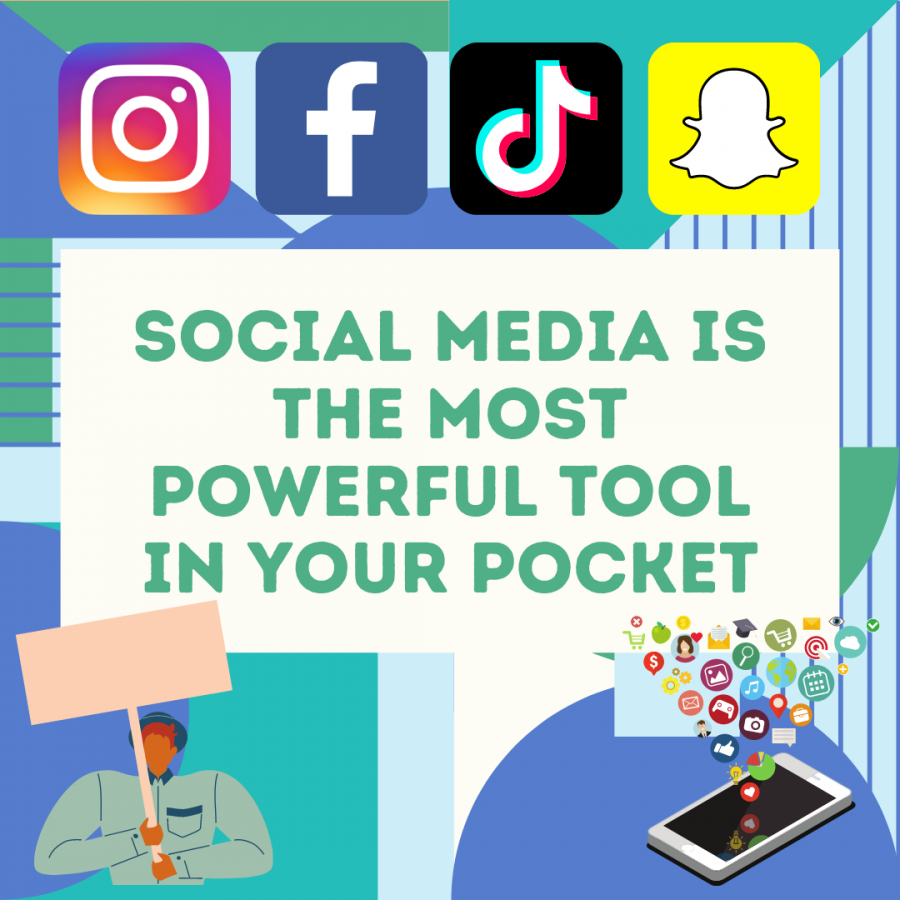How we use social media in 2021
Why social media is the most powerful tool in your pocket.
Instagram, Facebook, TikTok, and Snapchat are examples of social media platfroms that have taken the world by storm.
February 9, 2021
Growing up in this time is an experience unlike any other. The events that exude amongst us every day are new to everyone; our parents have never seen it, and obviously, neither have we. These recent events embrace another current: Social media.
I am not sure if we are all fully aware, but social media controls various aspects of our lives. The sheer power of it is astonishing; one TikTok video could bring a song to the top of the charts. I am not saying that we are an easily-swayed society, but we participate in these trends more often than not. This fad has caused several businesses to turn to specifically TikTok to promote their products, and, spoiler alert, it works. For example, American Eagle Outfitters has not only sold-out products with their content, but they have also used famous creators on the app to help. It is a perfect recipe for sales.
This not only works for promotion, but it can also affect political affairs. In late June 2020, people booked seats for a Trump rally during his re-election campaign in Tulsa, Oklahoma; but, they never showed up. On the day of the event, hundreds of seats were empty, and Trump supporters were deserted from what they were expecting to see, a great turn-out. This was a crafty nudge to the former-president to tell him that younger generations did not reside with him.
In light of the January 6, 2021 riots in D.C., numerous turned to social media for reassurance and revenge. Facebook, in particular, was flooded with expository posts. Divers got to work to find and reveal their relatives, co-workers, employees, and friends who partook in the tumult. By blasting their photos on social media, they were able to dishonor and try their associates properly.
Upon the painful death of George Floyd and the civil unrest that ensued, many congregated on Instagram to vocalize their support. Petitions and GoFundMe links were plastered everywhere on the site. It was a moment of assistance. Manifold sprung as activists; social media is a great way to get your message across in hopes of a change. Unfortunately, like usual online things, many treated this heightened awareness of prejudice as a trend, and these active voices have since then quieted down. Nevertheless, various do still raise to the occasion.
“Generation Z,” also known as today’s teenagers, is the coined term for the users that have led these matters. We see these platforms as a way to stand on our soapboxes. Instagram, Twitter, TikTok, and Facebook, have enabled us to hold these conversations and connections.
Likewise, it is common to retain news from these sites. Not a lot of people surf over to read articles on The New York Times website anymore because they can quickly sum it up in one post or short video. It is our modern-day hard copy. However, because of this, we can be easily influenced and misinformed. This is where the term “Fake news” buds from; the over-access to information can be abusive. If your way of reading the morning news is by scrolling through Twitter, you must account that what you are scanning may not be accurate. It is best to restrain to accredited records, not just your friends from summer camp.
Overall, we consume an abundance of information online every day. While that may be a good thing or a bad thing depending on whom you ask, I would say that we are marching our way into securing the internet as a positive place. We hold the power to satisfy our wants and needs just by pushing a few buttons; let us do it with a purpose.



